Grains
 Grain crops such as corn, soybeans and small grains are grown on over 100,000 acres in the five county area of Allegany, Cattaraugus, Chautauqua, Erie, and Steuben each year.
Grain crops such as corn, soybeans and small grains are grown on over 100,000 acres in the five county area of Allegany, Cattaraugus, Chautauqua, Erie, and Steuben each year. Relevant Events
Winter Field Crops Meeting
February 3, 2026 : Winter Field Crops Meeting
North Collins, NY
2026 No-Till & Cover Crop Conference
February 19, 2026 : 2026 No-Till & Cover Crop Conference
South Burlington, VT
NYSDEC How to Get Certified Course
March 3, 2026 : NYSDEC How to Get Certified Course
Ellicottville, NY
Framing the Discussions on BMR Corn

In the spring of 2025, Corteva announced they would discontinue the development of brown midrib (BMR) corn products. As numerous discussions on the topic have unfolded over the last several months, it has been apparent that sometimes the framing of the questions are not leading to the most productive discussions or decisions for a farm. Check out this article for important considerations for strateggizing forage plans for your farm.
What You Need to Know about the USDA's Farmer Bridge Assistance Program
Kate McDonald Polakiewicz, Farm Business Management
Southwest New York Dairy, Livestock and Field Crops Program
The US Department of Agriculture's Farmer Bridge Assistance (FBA) Program announced $12 billion in aid for US farmers this past December. Here's what you need to know.
Don't Put All Your Seeds in One Basket
Katelyn Miller, Field Crops and Forage Specialist
Southwest New York Dairy, Livestock and Field Crops Program

While harvest has stretched on for many, attention is beginning to shift toward planning for the 2026 growing season. This article highlights key factors to consider as seed ordering approaches, helping ensure selections align with field conditions and production goals.
The Tillage Toolbelt: Pest Management
Rounding out the final article in this series on till vs no-till, we're finally focusing on how your tillage decisions can impact the pest pressures on your farm. Your tillage decisions present different challenges and opportunities as it relates to pest management.
Looking Past the Bin Door
Katelyn Miller, Field Crops and Forage Specialist
Southwest New York Dairy, Livestock and Field Crops Program
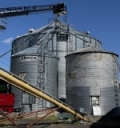
As grain enters the bins, I've been having more frequent conversations about commodity marketing. There is no one size fits all approach, but one thing remains the same: understanding your cost of production is the foundation of every sound management decision.
Governor Hochul Announces Two Grant Opportunities
Governor Hochul has announced two grant opportunities to help address the impacts of climate change and protect water quality. Funding is available in four tracks: Livestock Management (alternative waste and precision feeding management), Adaptation and Resiliency, Healthy Soils, and Agricultural Forestry Management. Contact your local Soil & Water Conservation office for more information.
The Tillage Toolbelt: Soil Structure
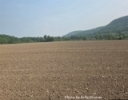
Continuing this series from last month, we're taking a look at all of the differences between tilling and no-till systems to help you figure out which system is best for your farm. We previously looked at how tillage decisions impact nutrient cycling, and this time we're considering how the same decisions can change soil structure. Your choice to till or not to till can significantly change your soil structure, determining what kinds of challenges may appear or which may be avoided.
The Tillage Toolbelt: Nutrient Cycling
The decision to till or no-till is not a one size fits all approach. This article series aims to clear up some of the confusion about the ways that tillage (or a lack thereof) impacts our fields, and how the challenges you face could determine whether it's the right move for you.
Combine Adjustments to Minimize Corn Harvest Losses

Volunteer corn infestations popping up in your crop rotation can reduce crop yield and require additional herbicide considerations. Now is the time to prepare for harvest by calibrating your equipment to minimize harvest losses.
Grants & Incentives for New York Agriculture
By Farm Credit East
There are a number of grants and incentives available for Northeast agriculture businesses, but learning about their availability and navigating the application process can be a challenge. To help with this, Farm Credit East has released an update to its report identifying federal, regional and state grants, loan guarantees, and other incentives available to assist Northeast producers of all types and sizes.
This post is an excerpt from the document, focusing on funding opportunities available in New York. Find a full list of opportunities, including sector-specific opportunities for states including, but not limited to New York, see here.
Budgeting and proposing operational changes to or with senior management
By Jason Karszes
On more and more dairy farms every year, employees play integral roles in day-to-day operations, decision making, and problem solving. In these roles, ideas for changes to operations and for capital investments are generated. While these ideas might be quite important to the middle manager for their area, across the farm other opportunities in support of the overall priorities and mission of the farm also need to be considered.
Proposing change to the leadership of the farm, or as part of the leadership team, is typically an essential step to improve farm operations. Developing proposals in support of the change can help with identifying all the potential risks and returns and decision-making by the senior management team. Several key areas to address in the proposal are laid out below.
Sharing PRO-DAIRY's Dairy Market Watch resource
Kate McDonald Polakiewicz, Farm Business Management
Southwest New York Dairy, Livestock and Field Crops Program
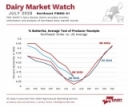
In case you aren't aware of this resource, PRO-DAIRY's Dairy Market Watch provides monthly information and analysis of Northeast dairy market trends. Just released are the July 2025 data.
Welcoming Kate, our Farm Business Management Specialist
Kate McDonald Polakiewicz, Farm Business Management
Southwest New York Dairy, Livestock and Field Crops Program

Kate McDonald Polakiewicz has joined our team as Farm Business Management Specialist and will be offering programming in financial management, production economics, business planning, and market analysis.
Late Season Forage Considerations for 2025

The challenges of the 2025 growing season continue with questions about adequate quantity and quality of forages to meet the needs of dairy herds in the coming year. As we look for a strong finish to the growing season to alleviate some of these challenges it is important to assess your forage situation and take steps to meet the forage needs of the herd.
Guidance for Manure Applications on Prevented Planting Acres
Many acres across New York were unable to be planted to corn, soybeans or new perennial forages due to extended wet conditions during this spring's planting season, resulting in several crop insurance claims. Check out this guidance for manure applications on prevented planting acreage for farms under CAFO permit and/or following a CNMP.
Pricing Corn Silage - Preliminary Fall 2025 Estimates

You might think it's too early to talk about corn silage harvest, but this season's challenges have many re-evaluating plans. Preliminary estimates from John Hanchar, NWNYDLFC, put the corn silage price at approximately $63 per ton. These early estimates can support informed decision-making as cropping and forage strategies shift.
Rain vs. Herbicides
Katelyn Miller, Field Crops and Forage Specialist
Southwest New York Dairy, Livestock and Field Crops Program

As a result of staggered planting, herbicide application timings have been spread out over a significant portion of time. Weeds and weed control are impacted by wet weather and subsequent flooding conditions for a variety of reasons.
Pesticide Label Changes Brought on by the Endangered Species Act
Katelyn Miller, Field Crops and Forage Specialist
Southwest New York Dairy, Livestock and Field Crops Program

Changes to our pesticide labels are coming including mitigation strategies for spray drift and runoff/erosion. Check out this article to see how these updates will appear on our product labels.
Ag Safety and Health Springtime Preparations

Spring is one of the busiest times of the year on a farm. Even if things are busy, keep health and safety to the forefront of what you do.
Growing Degree Days: Another Tool in the Harvest Toolbox
Katelyn Miller, Field Crops and Forage Specialist
Southwest New York Dairy, Livestock and Field Crops Program

Growing Degree Days (GDD) are a valuable tool for estimating crop development and optimal harvest timing. Whether tracking corn maturity or alfalfa harvest, using GDDs alongside other measurements can help improve decision-making and ensure better crop management.
It is Time to Check the Planter

It's April and planting season will be here before we know it. Take some time to check over your planter and conduct some maintenance so you are ready to hit the ground running in May.
USDA Expediting Direct Economic Assistance to Agricultural Producers

U.S. Secretary of Agriculture Brooke Rollins announced that the U.S. Department of Agriculture (USDA) is issuing up to $10 billion directly to agricultural producers through the Emergency Commodity Assistance Program (ECAP) for the 2024 crop year. Eligible producers must report 2024 crop year planted and prevented planted acres to FSA on an FSA-578, Report of Acreage form. Contact your local FSA office for more information.
Practical Lessons Learned from Advanced Soil Health Training: Part 3
Katelyn Miller, Field Crops and Forage Specialist
Southwest New York Dairy, Livestock and Field Crops Program

The third and final session of the Advanced Soil Health Training Cohort focused on two critical topics: no-till and planting green. The session provided valuable insights through expert presentations and firsthand experiences shared by farmers through presentations and panel discussions.
Winter and wet weather manure spreading reminders
NYS Department of Environmental Conservation is reminding farmers to be mindful of conditions that are high risk for runoff.
Field Equipment or Road Equipment?

As farms continue to evolve, truly addressing soil management in forage production requires more focus, with the distinction between field equipment and road equipment being an important opportunity.
So You Want To Become A Certified Pesticide Applicator?
Katelyn Miller, Field Crops and Forage Specialist
Southwest New York Dairy, Livestock and Field Crops Program

Have you ever thought about becoming a Certified Pesticide Applicator but felt intimated by the process? This article walks through the steps to become a Certified Private Pesticide Applicator, including the necessary training, requirements, and testing as required by the Department of Environmental Conservation (DEC).
Win a Grain Rescue Tube and Training for Your Local Fire Department
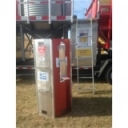
Win a grain rescue tube and training for your fire department! Nationwide Insurance once again is teaming up with the National Education Center for Agricultural Safety (NECAS), Peosta, Iowa, to award emergency first responders with grain rescue tubes and hands-on rescue training to help save lives.
Proper Stored Grain Maintenance over the Winter: A Key to Pest Management

The combination of low grain prices and above average yields have led many farms to leave the grain in the bin and hope for better prices this spring. Check this article out for tips on how to protect your stored grain.
Fertilizer Calculations
Katelyn Miller, Field Crops and Forage Specialist
Southwest New York Dairy, Livestock and Field Crops Program

This article provides a detailed guide on how to calculate fertilizer applications based on soil test results, including examples of both granular and liquid fertilizers. It covers understanding fertilizer labels, determining nutrient content, and applying the correct amount of fertilizer to meet crop needs for optimal growth.
Practical Lessons Learned from Advanced Soil Health Training: Part 2
Katelyn Miller, Field Crops and Forage Specialist
Southwest New York Dairy, Livestock and Field Crops Program

The article discusses the insights gained from a soil health cohort session on cover crops, focusing on species selection, decision support tools, and root demonstrations. It also highlights how cover crops can improve soil health, enhance pest management, and provide valuable benefits for farm productivity and sustainability.
Does Cropping System Matter for Biologicals?

Biologicals are a hot topic in agriculture. This article highlights the uncertainties we face with their use, especially considering our different cropping systems.
Corn Stunt: A New Disease and A New Insect Vector for New York State

Corn stunt is a new corn disease that has been identified in four New York Counties this year. Symptoms present similarly to other stresses in corn, including drought, soil compaction, and phosphorous deficiency.
Decoding Your Soil Test Results
Katelyn Miller, Field Crops and Forage Specialist
Southwest New York Dairy, Livestock and Field Crops Program

Regular soil sampling is important for improving management practices, but many people feel confused when they receive their test results. With so much information, it can be hard to know what to do next. In this article, I'll explain the different measurements found in soil test reports and how to use this information effectively.
Manure-Handling Emergency Action Plans

Every farm, regardless of size, that handles animal waste must be prepared to manage a manure-handling emergency. While prevention is the best strategy to reduce the risk of this type of emergency, not all manure spills can be prevented; therefore, a written emergency action plan should be developed for every farm. This article highlights the components in an emergency action plan and their importance.
Recommended Procedures for a Between-field Combine Clean-out

Cleaning out your combine can help reduce the spread of weed seed, including herbicide resistant weeds. Check out this article to provide tips on how to cleanout your combine during the growing season!
Drones in Agriculture
Katelyn Miller, Field Crops and Forage Specialist
Southwest New York Dairy, Livestock and Field Crops Program

This article discusses how drone technology fits into agriculture. While drones may offer some benefits, farmers should consider costs, regulations and farm needs before adopting them.
Practical Lessons Learned from Advanced Soil Health Training
Katelyn Miller, Field Crops and Forage Specialist
Southwest New York Dairy, Livestock and Field Crops Program

Recently, I participated in the first meeting in the Advanced Soil Health Training Cohort hosted by American Farmland Trust. Topics that we cover throughout the program include increased soil health, cover crop management, conducting soil health assessments, and economic considerations of adoption. With the first meeting having taken place in August, I wanted to share some of my lessons learned.
Manure Management - The Safety Aspect

As manure gets spread onto corn fields this fall, it's important to remember that manure gas is incredibly dangerous. Take precautions to protect yourself, your family, and your employees as you spread manure from storage.
Managing Flood Damaged Crops
With the recent flood damage, crops were unfortunately damaged. This article highlights how to manage crops that were damaged by floods.
Assessing Forage Crop Damage from Recent Weather Events
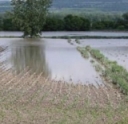
Flooding has had a devastating impact in the region this past weekend. Regardless of whether a few acres or several fields were affected, it is helpful to get out and scout your crops to understand the impacts. Cornell Cooperative Extension reminds farms affected by recent storm damage to document and share any impacts the weather may have had on their home or business.
Understanding Tar Spot
Katelyn Miller, Field Crops and Forage Specialist
Southwest New York Dairy, Livestock and Field Crops Program

Tar spot, a foliar disease of corn, has made its way into New York State's crop production. Learn more about the disease, what it can be confused with, and how to manage it on your farm.
Does a warm winter mean increased insect pressure?
Katelyn Miller, Field Crops and Forage Specialist
Southwest New York Dairy, Livestock and Field Crops Program

The past winter, the weather proved to be one for the record books. New records were set for high temperatures, snowfall was low, and Lake Erie remained ice free. What might this mean for pest pressure? Check out this article to find out.
All Things Tillage
Katelyn Miller, Field Crops and Forage Specialist
Southwest New York Dairy, Livestock and Field Crops Program

Do you have questions about tillage? You're not alone. Every management decision that gets made on the farm has tradeoffs, and tillage is no exception. Check out this article to learn more about some commonly asked tillage questions.
Managing forage in the face of more frequent extreme weather events
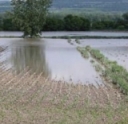
The list of notable weather events in 2023 is long and varied — from drought In the forage world, wild swings in winter weather can be a concern for conditions in parts of the Midwest, to extreme flooding in portions of New England, to smoky skies from Canadian wildfires. Stepping back from the seasons' weather, to larger climate trends, 2023 set a new global record for the warmest year, and rainfall patterns continue to become more extreme. While we cannot manage the weather, understanding the increased likelihood of these events, and evaluating the goals of our forage program, provide the best chance to minimize the negative implications for these extreme events.
A Review of the Endangered Species Act and Pesticides: An Example
Katelyn Miller, Field Crops and Forage Specialist
Southwest New York Dairy, Livestock and Field Crops Program

On March 20th, 2024, the Endangered Species Act Committee of the Weed Science Society of America (WSSA)'s hosted an informative webinar on how pesticide labels may change to protect endangered species. This article provides a quick summary of action items that were presented. You can also watch the recording on NYSIPM's YouTube channel.
2024 Updates on Dicamba Tolerant Soybeans for NY Producers
On February 06, 2024, the U.S. district court in Arizona vacated 2020 registrations of three dicamba containing products (XtendiMax, Engenia and Tavium) for over-the-top (OTT) applications in dicamba-tolerant (Xtend and XtendFlex) soybean. In response to the U.S. district court ruling, the EPA issued an Existing Stock Order on February 14, 2024, that allows limited sale, distribution, and use of these dicamba OTT products that were already in the possession of growers, distributors or in the channels of trade and outside the control of pesticide companies as of February 06, 2024. Learn what this means for you as a soybean grower.
Integrated Pest Management
Katelyn Miller, Field Crops and Forage Specialist
Southwest New York Dairy, Livestock and Field Crops Program
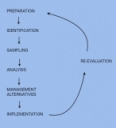
Increasing concerns over environmental sustainability in agriculture have spurred interest in Integrated Pest Management (IPM). This approach combines various techniques to control pests while minimizing environmental impact. Check out this article to learn more about IPM and how it can impact your pest management decisions.
Productive Shop Checklist

The beginning of March has been uncharacteristically warm but we can't forget that there is likely more winter ahead of us. Take the time to check out your farm shop and get it ready for a busy spring and summer season while there's still time.
Considerations for N-fixing biologicals in corn production

In recent years, products containing nitrogen (N) fixing bacteria have been marketed for their ability to supply N to a corn crop. Biologicals are generally understood to provide N throughout the growing season as microbes are active but the main question is: How do we determine if a biological (1) improves yield; and/or (2) reduces the need for fertilizer N?
Preparing and Storing Farm Equipment for Winter

Winter in the Northeast is notorious for extreme temperature changes and varying moisture levels. This article summarizes best practices from equipment manufacturers to keep your investments protected from harsh winter conditions.
Custom/Third Party Manure Applicator Registration - Update & Resources

NYSDEC now requires commercial manure applicators that apply manure on CAFO farms to register with the department and complete annual reporting. While applicators need to register by January 18, 2024 to be in compliance, it is recommended towait until after January 1, 2024 to do so. Kirsten Workman with PRO-DAIRY has provided comments about this new requirement and resources for registration.
2023 NY Pesticide Reporting Reminder Notice and Electronic Reporting Requirement

If you currently hold an active certification allowing you to make commercial pesticide applications in calendar year 2023, you are required by law to submit an acceptable annual report of your pesticide applications (or lack thereof) no later than FEBRUARY 1, 2024. To ensure you submit an acceptable report to the DEC, check out this notice sharing reporting changes and common reporting issues.
Fall Lime Application
Katelyn Miller, Field Crops and Forage Specialist
Southwest New York Dairy, Livestock and Field Crops Program

Spring activities become overwhelming quick, so think about making lime applications now. Fall lime applications allow time for lime to react in the soil, and makes for one less task in the spring.
Confined Spaces: Hazards of Manure Gases

While new manure handling systems are more efficient and reduce manual labor, farmers and ranchers must understand the hazards associated with working in and around confined spaces where manure is stored. Keep yourself and employees safe this season by understanding the risk of manure gases!
Selecting Seed Varieties
Katelyn Miller, Field Crops and Forage Specialist
Southwest New York Dairy, Livestock and Field Crops Program
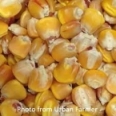
As we round out corn season, it's time to look back at the passing season and think about seed selection for next year. Here are some tips to keep in mind to help you select seed that fits your operational needs.
Corn Ear Rots and Mycotoxins

There are many pathogens that cause ear rots. Identify which ones are associated with mycotoxin contamination!
Please help us add contacts to our SWNY Farm Service Provider Directory!
Amy Barkley, Team Leader & Livestock Specialist
Southwest New York Dairy, Livestock and Field Crops Program

We want to know which categories and contacts would be most helpful to you! Please take 2 minutes to answer our anonymous survey at https://tinyurl.com/SWNYServiceProviders.
Soybean Cyst Nematode in NY
Katelyn Miller, Field Crops and Forage Specialist
Southwest New York Dairy, Livestock and Field Crops Program

Soybean Cyst Nematode is the #1 yield reducing pest of soybeans. It cannot be eradicated entirely, so read on to learn more about the impact of this pest and management strategies.
It's Soil Sampling Season
Katelyn Miller, Field Crops and Forage Specialist
Southwest New York Dairy, Livestock and Field Crops Program

Soil testing is the building block of any fertilizer management program, allowing you to evaluate your pH, organic matter, and various macronutrient and micronutrient levels in your soil. Fall is a popular time of year to take soil samples, so let's discuss how to get your soil from the field and into the lab for analysis.
Adding an Insecticide to your Soybean Herbicide Tank Mix
Katelyn Miller, Field Crops and Forage Specialist
Southwest New York Dairy, Livestock and Field Crops Program

If you're going to apply herbicides to your soybeans and know that aphids are present, should you add an insecticide to the tank mix? Check out this article to learn some considerations for making this decision on your farm.
The Effects of Dry Conditions on Weed Management

The current weather patterns we have been/are experiencing could significantly impact crop establishment and development; it could also affect weed control success. Read on for some considerations on POST herbicide applications during dry weather.
Farmers: What's in your weed seedbank?

Are you interested in learning more about the diversity of your weed seedbank? The Weed Seedbank Project is looking to recruit 50 farms throughout the state to analyze their weed seedbanks and provide tailored management recommendations. To get involved, leave a message at 315-787-2432 or email bjb342@cornell.edu. The deadline to apply is July 1st, so don't hesitate - apply today! For more information, click here.
Seedcorn Maggot Risk Assessment
Katelyn Miller, Field Crops and Forage Specialist
Southwest New York Dairy, Livestock and Field Crops Program
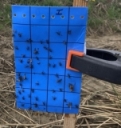
Seedcorn maggot is a pest that impacts large-seeded crops like soybeans and corn. Read on to learn about the life cycle of this pest, how it affects crops, and the research currently taking place to develop prediction models for emergence in New York.
Herbicide-Resistant Weed Management Strategies
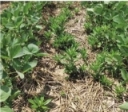
Herbicide-resistant weeds are not new, with the first resistance in the Northeast found in 1977. The list of resistant weeds grows, making the control and management of them an important aspect of farming operations.
13 Safety Tips for Anhydrous Ammonia
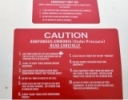
As the recent wet weather has caused us to halt field activities, it's a good time to think about the risks involved with utilizing anhydrous ammonia in our fertilizer programs, and how to protect ourselves from them.
Winter Wheat Fields Are Greening Up

Spring green up is an important time for assessing and managing winter wheat. The growth stage at green-up will depend on planting date and weather conditions, so it is important to scout the field for accurate growth staging.
Making Cover Crops Work in the Northeast: Termination Strategies For Success

To make cover crops a successful part of crop rotation, especially in the Northeast, it is important to be creative and adaptable. Cover cropping works the best when it is an integral part of the farm's cropping system, not just an afterthought.
Using Adjuvants in Your Pesticide Program
Katelyn Miller, Field Crops and Forage Specialist
Southwest New York Dairy, Livestock and Field Crops Program

As planting season approaches, it's a great time to review how adjuvants can improve pesticide efficacy. Read on to learn more about various types of adjuvants and important considerations for selecting one to use in your farms pesticide program.
Free Guide Available for Planter Prep Tips

Starting a new crop is the beginning of a new year for most farms, but it's also a time when taking care of a key piece of equipment can make a big difference in spring success. The planter is a complex tool that must be precise when the weather is right to hit the field. A new free guide from Farm Progress offers information to get that planter in tip-top shape.
Best Management Practices for Field Biosecurity
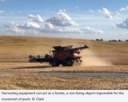
To reduce the likelihood of introducing new pests to the farm, producers should develop a biosecurity plan for their operation. Read on to learn things to consider when developing a plan for your farm.
Ways to Reduce Spray Drift and Other Considerations

The importance of keeping crop protectant applications on target continues to be at the forefront of growers' minds as well as people neighboring the farms. Making sure the product stays on the intended target is critical for the health of the plant as well as those surrounding the area. As you plan for the 2023 crop season, also plan for how you're going to reduce spray drift this coming season.
New York On-Farm Research Partnership Value of Manure Project

Manure has all seventeen essential plant nutrients and can increase yield beyond what can be obtained with fertilizer only. In this project with the Nutrient Management Spear Program, the nitrogen fertilizer replacement value (how much N can we credit to manure?) is evaluated and yield differences as a result of manure application. Read on to learn the requirements for participation and trial setup.
Winter Manure Spreading Restrictions

Winter manure spreading can be a tricky issue depending on where you farm. In the Northeast, some states ban winter manure spreading, while others allow it but have specific rules to follow. Regulations surrounding winter manure spreading vary greatly by state, so make sure you're up to date on what you're allowed to do in New York.
Win a Grain Rescue Tube and Training for Your Local Fire Department!

When someone becomes helplessly engulfed in grain, rural firefighters are often the first and only line of defense. Unfortunately, many departments lack the specialized techniques and equipment necessary for a successful grain bin rescue. Nationwide Insurance once again is teaming up with the National Education Center for Agricultural Safety (NECAS), Peosta, Iowa, to award emergency first responders with grain rescue tubes and hands-on rescue training to help save lives.
The contest begins on January 1, 2023 at 8:00 a.m. CT and extends through April 30, 2023 at 11:59 p.m. CT. Only entries submitted during this time will be considered for the contest. To enter, describe how your local fire department or emergency rescue team and community would benefit from grain entrapment training and a rescue tube, as well as how the tube and training could be shared with nearby departments. For more information click here or contact jim.carrabba@bassett.org or call (800)343-7527 ext. 2216.
December 2022 Storm Damage Survey

CCE is working with officials to understand the extent of the December 2022 Blizzard. We are collecting information on damage to agricultural infrastructure, equipment, livestock, stored crops, and/or winter produce. You can either fill out the reporting survey, found at https://cornell.ca1.qualtrics.com/.../SV_9AytO5D9oYvRCXc or report the damage to one of our team's regional specialists. If you had damage from the November 2022 storm and haven't yet reported it, you can do that at this time.
Grain Drill Calibration

The seed delivery system in drills is not as precise as that used in planters because they use flutes or sponges to meter seed instead of seed singulation. However, drills are cost effective for establishment of close-spaced crops and can place seed at a uniform depth, provided depth-control or furrow-closing wheels when they are properly adjusted and maintained. Click here to review the process of how to calibrate a grain drill.
Plan now for better 2023 weed control

Did you achieve the level of weed control you wanted in corn in 2022? Did you prevent weeds from growing with corn early in the season? By evaluating this year's challenges and successes now, you can lay out an even better weed control strategy for 2023.
Reflecting on Tar Spot in 2022

While tar spot was first found in Pennsylvania in late 2020, its spread was limited in the commonwealth until recently. This year (2022), tar spot was found across the majority of southern PA and in western PA into the Lake Erie region. We want to emphasize that there were no reports of yield loss due to tar spot in the areas affected. Read on to learn how the pathogen survives and spreads along with possible management strategies if the disease has been identified in your area.
Weed resistance a growing problem in N.Y.

Weed control is a major concern for growers, especially considering the growing trend of herbicide resistance. Read labels carefully, be open to other techniques that can help preserve the herbicide arsenal, learn about how herbicide resistant weeds are spreading throughout NYS and how to reduce incidence of spread.
Don't Become a Statistic: Grain Bin Safety Tips

Many of the ways to increase safety when working and living around grain storage involve basic safety practices, but more education and enforcement is needed on the farm. Over two-thirds of US grain is stored on the farm without OSHA standards for safety protocols. It is up to you to keep yourself, your employees, your spouse, kids, and grandkids safe from grain bin hazards.
No Relief in Sight for High Fertilizer Prices

If you haven't purchased fertilizer yet for 2023, don't expect much price relief between now and next spring unless commodity prices and natural gas prices come down dramatically. And that's not likely, at least at this point, according to Jason Troendle of The Fertilizer Institute.
What are mycotoxins?

Mycotoxins are toxic substances produced by fungi (mycotoxigenic fungi) on the different substrates where they grow. Mycotoxins can be toxic when inhaled, absorbed through the skin, or consumed at very low concentration levels, which means that even a few milligrams in food or feed may pose a risk for human and animal health. Read on to learn more about which crops are affected, their impact on human health, and when outbreaks occur.
How Late Can I Control Weeds in the Fall

How late can an herbicide application be made in the fall and still be effective? Here are some comments about controlling perennials and winter annual weeds.
Late Fall is Time to Winterize Your Sprayers

Now that most of the field spraying is over for the season and the weather is turning colder it's time to winterize your pesticide sprayer before it gets too cold and causes damage to sprayer components. The following are tips to guide you.
Herbicide Supplies and Storage during the Winter

With volatile supply chain issues, it may make sense to purchase bulk inventory of herbicides and/or other pesticides. However, you must keep in mind appropriate storage parameters, namely issues regarding freezing of pesticide products. Read on to learn how to store these products safely for the upcoming winter season.
A Representative Soil Sample Makes All The Difference
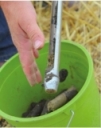
"An acre of soil to a 6-inch depth weighs about 1,000 tons, yet less than 1 ounce of soil is used for each test in the laboratory." That number is quite staggering. Therefore, pulling a high-quality soil sample is important every time we hit the field. Here are a few tips for accomplishing just that to round out a successful crop season.
Soil Holds the Cards

Soil testing is the base for determining management decisions. With the current markets for all crop nutrients, don't play a guessing game with the most important input cost out there. The crop this year is going to be different than last year when it comes to yield and what it will take to get that yield. So don't expect similar nutrient levels as last year. The pressure to buy fertilizer gets to be sooner and sooner every year, so soil testing provides the information needed quickly.
Fall Weed Control Options
Fall is an ideal time to control many of our troublesome weeds present in fields after harvest. It is easier to control many of these weeds in the fall rather than waiting until spring. A fall burndown application will not always eliminate the need for a spring burndown application prior to planting but provides a broader spring burndown application window.
It's Go Time for Winter Cereals

Winter annual forages are a valued feed source across the United States, but this year they will offer extra benefits to those areas that have been stricken with drought. The beauty of winter annuals is that they work just about anywhere, assuming there is sufficient moisture. Read on for tips on how to successfully utilize these crops.
Herbicide Resistance Survey

With the recent documentation of evolved herbicide resistance in New York, Cornell is looking to get a better feel for the current "state of the state" with respect to herbicide performance and failure. If you think you have any herbicide resistant weeds, take this survey to help Cornell weed scientists plan future research and extension projects.
Record Silking/Tasseling Dates for Corn Fields
Tracking Growing Degree Days (GDD's) is an effective way to monitor the progress of a corn crop and in recent years several online tools for tracking GDD's have been developed. This article will provide links to the Climate Smart Farming GDD tool along with an instructional video from Dr. Kitty O'Neil with the North Country Regional Ag Team to estimate GDD accumulation from planting. With this tool you can also enter silking/tasseling date in the planting box to track accumulation from that date.
My Feed Dust is Moving!? Grain Mites and How to Manage Them
Amy Barkley, Team Leader & Livestock Specialist
Southwest New York Dairy, Livestock and Field Crops Program

Grain mites are small arachnids that live in cereal grains. They have the potential to reduce nutrient densities of feed and can easily spread around the farm. Managing them when you first notice them can help limit damage.
Straw: To Bale or Not to Bale?

With fertilizer prices at near record levels the nutrients removed by baling straw is much more significant than it was in previous years. What's your breakeven point for wheat straw?
USDA Offers Funding to Reimburse Farms Transitioning to Organic Production
Amy Barkley, Team Leader & Livestock Specialist
Southwest New York Dairy, Livestock and Field Crops Program

The U.S. Department of Agriculture (USDA) is providing up to $20 million to reimburse agricultural producers and handlers who are certified organic and crop and livestock producers who are transitioning to organic for eligible expenses incurred during fiscal years 2020, 2021, and/or 2022.
Grant Seekers: SAM & DUNS: Register Your Business Now!
Amy Barkley, Team Leader & Livestock Specialist
Southwest New York Dairy, Livestock and Field Crops Program

SAM & DUNS registrations are free and needed to apply for federal grant opportunities. While it takes minutes to apply, it may take weeks to receive your number. Registering your farm or business now means that you'll be prepared for grant opportunities that may come your way.
Is it Too Late to Plant Cover Crops?
Amy Barkley, Team Leader & Livestock Specialist
Southwest New York Dairy, Livestock and Field Crops Program

Some cover crops are going in the ground in WNY, but others are waiting on the removal of crops that are still in the fields. Will your crop removals correspond with the establishment success of your cover crop? This article explores how plating date, species, and method of planting impact the crop's success.
Cornell Cooperative Extension Farmer School Tax Series
Katelyn Walley, Business Management Specialist and Team Leader
Southwest New York Dairy, Livestock and Field Crops Program
Cornell Cooperative Extension's Farmer Tax School: An educational series from Cornell Cooperative Extension Farm Business Management Specialists offering courses designed to inform and empower farm managers to better understand their tax obligations, management strategies, and improve farm profitability. This consists of four courses offered October 2021 - January 2022. For more information, visit tinyurl.com/ccetaxschool.
USDA Ready to Help NY Farmers Recover from Recent Storms
Amy Barkley, Team Leader & Livestock Specialist
Southwest New York Dairy, Livestock and Field Crops Program

SYRACUSE, New York, July 16, 2021 — Recent extreme weather conditions have impacted farmers and ranchers in New York. The U.S. Department of Agriculture (USDA), through the Farm Service Agency (FSA), has disaster assistance programs available to help agricultural producers recover after natural disasters, including floods.
Spring Weed Control in Grass Hay and Pastures by Dwight Lingenfelter - PSU
Joshua Putman, Field Crops and Forage Specialist
Southwest New York Dairy, Livestock and Field Crops Program

Over the past few weeks, we have received calls in the SWNY region pertaining to weed control options in grass hay and pastures. Spring weed control timing is critical and there are several options to consider. Remember, once weeds are in the "seed setting" stage, a herbicide application is no longer effective. Full article can be found here.
Checking Insect Traps in the Snow - What we have so far?
Joshua Putman, Field Crops and Forage Specialist
Southwest New York Dairy, Livestock and Field Crops Program

As of this week, we have our first moth captures in SWNY. Two black cutworm moths were captured in Steuben County and no moths were collected from Cattaraugus County. As temperatures increase and the spring progresses, be on the lookout for these yield robbing pests.
The Pigweed Roadshow is on!
Joshua Putman, Field Crops and Forage Specialist
Southwest New York Dairy, Livestock and Field Crops Program
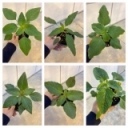
Interested in learning about problematic weeds in the state? We are looking for locations willing to host us as we will be joined by Dr. Lynn Sosnoskie and her weeds, to learn about different identification characteristics among the pigweed species here in NY. Can you correctly identify all 6 weeds in this photo?
Research Finds Multiple Herbicide-Resistant Marestail is Present in New York
Joshua Putman, Field Crops and Forage Specialist
Southwest New York Dairy, Livestock and Field Crops Program

Thirty populations of marestail (horseweed) were collected in the fall of 2020 and are being screened for resistance to commonly used herbicides. Of the 30 collected, 27 appear to be resistant to glyphosate (Roundup) and 28 populations appear to be resistant to cloransulam herbicide, an ALS-inhibitor. This indicates that we have multiple-resistance in NY. It is also suspected that 4 of these 30 samples may be resistant to paraquat (Gramoxone) herbicide. The screening efforts will continue to evaluate the effect of products like 2,4-D and dicamba, Liberty, and PPO-inhibiting herbicides like Reflex and Sharpen.
Weed Control in Wheat and Nitrogen Carrier Issues
Joshua Putman, Field Crops and Forage Specialist
Southwest New York Dairy, Livestock and Field Crops Program

Populations of winter annual weeds will become more prevalent in late March/early April and can compete with wheat and barley and slow the rate of crop development potentially reducing yield. If winter annual weeds like common chickweed, henbit, purple deadnettle, marestail/horseweed, and others emerge with the small grain and are left unchecked, the potential impact on yield could be great.
Certain herbicides can be applied in different nitrogen fertilizer carriers, but timing is critical. Article written by Dwight Lingenfelter with Penn State University.
Nitrogen Applications Being Made to Winter Cereals - How much should you apply?
Joshua Putman, Field Crops and Forage Specialist
Southwest New York Dairy, Livestock and Field Crops Program

Winter cereals like wheat, should have some nitrogen (N), most of the phosphorus (P), and possibly some potassium (K) in the fertilizer band at planting; soil test results should be analyzed before making a decision about P and K application amounts. With recent cool temperatures, spring nitrogen applications are being made across Western NY as growers are able to get across the fields efficiently. When attempting to achieve near-maximum yields of wheat and when diseases can be controlled, the nitrogen rates can be increased to 80 to 90 pounds per acre. The full article on fertilizer rates for winter cereal crops can be found here.
The Handy Bt-Trait Table for U.S. Corn Production
Joshua Putman, Field Crops and Forage Specialist
Southwest New York Dairy, Livestock and Field Crops Program
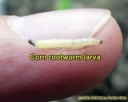
2021 marks the 25th year of commercialization of Bt corn in the United States. The first Bt corn hybrids helped producers control European corn borer, but Bt has come a long way since then. Bt hybrids are now planted on greater than 80% of U.S. corn acres. The benefits of widespread use of Bt hybrids include a reduction in corn borer in the landscape (benefitting conventional corn & vegetables too), and an overall reduction in insecticide use. Producers in SWNY are reviewing seed catalogs to purchase the best corn hybrids for their operation. Some acres in the region are continuous corn and would warrant the need for protection against certain pests such as corn rootworm. This PDF document provides information about the trade names, primary insect targets, and herbicide tolerances for each product. If you have questions about corn traits or placement, contact Josh Putman at 716-490-5572 or jap473@cornell.edu.
Replace Missing PTO Shields at Discount Prices
Amy Barkley, Team Leader & Livestock Specialist
Southwest New York Dairy, Livestock and Field Crops Program

PTO shields are not often thought about, and when they are, it's usually in a negative light. However, they are an important part of a farm's safety plan. PTOs are dangerous and can result in catastrophic injury. Installing a shield is an added barrier of protection between man and machine. A program offered through the New York Center for Agriculture Medicine and Health (NYCAMH) can provide replacement PTO shields at substantially reduced cost. These parts cost between $59 - $83 through the program and can be ordered at https://www.nycamh.org/program...
Liberty-resistant Palmer amaranth confirmed in Arkansas
Joshua Putman, Field Crops and Forage Specialist
Southwest New York Dairy, Livestock and Field Crops Program

Researchers from the University of Arkansas have identified Palmer amaranth populations that survived several applications of Liberty (glufosinate) Herbicide. Seed was collected and tested in the greenhouse showing a resistance of 16 times the typical field use rate. These findings represent the first documented case of a broadleaf resistance to Liberty Herbicide in the world. Liberty link traits are an additional tool to help corn and soybean producers control problematic weeds like Palmer amaranth, waterhemp, and marestail. Palmer amaranth is now present in 3 counties in New York State, one of which is in Southwest NY. Seed was collected from these populations in the fall of 2020 and are being tested for resistance to our commonly used herbicides. Stay tuned as we conduct research on these NY populations. Full article from the University of Arkansas can be found here.
Planting dicamba-tolerant soybeans in 2021? Options and changes to the labels
Joshua Putman, Field Crops and Forage Specialist
Southwest New York Dairy, Livestock and Field Crops Program

-Written by Mike Hunter, Field Crop Specialist with the North Country Regional Ag Team-
Are you planting dicamba-tolerant (Xtend or XtendFlex Technology) soybeans in 2021? If so, one of the tools in the weed control toolbox will be the option to use one of the three registered dicamba herbicides for use on Xtend or XtendFlex soybeans. In October 2020, the EPA approved a five year registration of XtendiMax and Engenia herbicides. It also extended the registration of Tavium herbicide. Xtendimax, Engenia and Tavium are currently the only dicamba products registered for over-the-top use in dicamba-tolerant soybeans in New York State. There are several updates and changes to the New York labels that can be found on the Cornell Field Crops Blogs. If you have questions about soybean production in 2021, contact Josh Putman at 716-490-5572 or jap473@cornell.edu
Grain Handling and Storage Safety
Joshua Putman, Field Crops and Forage Specialist
Southwest New York Dairy, Livestock and Field Crops Program
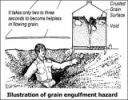
Grain facilities are locations that receive, handle, store, process, and ship bulk agricultural commodities like corn, soybeans, wheat, and oats. In New York, these facilities can be quite large and can handle large quantities of grain products. Additionally, many agricultural producers have their own grain facilities for on-farm storage. The grain handling industry is hazardous because workers can be exposed to serious and life-threatening dangers. Suffocation is the number one cause of death in grain storage bins. There are things that can be done to reduce these hazards. Information and resources can be found on the United States Department of Labor Occupational Safety and Health Administration (OSHA) website.
Livestock Report - Jan. 22, 2021
Amy Barkley, Team Leader & Livestock Specialist
Southwest New York Dairy, Livestock and Field Crops Program
There have been some shifts in the beef market as of late, and some changes for the year 2021, including increased costs of grain. With corn prices approaching $5.50/bushel, there may be an advantage to running stockers this year. Generally, the trends in the market have been as follows: cull cows have maintained the same price year over year, finished prices have declined, feeders were up $5/cwt in 2020 vs 2019, and bull calf values are up. The details can be found in the full report by Dr. Mike Baker.
Soybean Cyst Nematode Keeps Spreading, Economic Losses Increasing
Joshua Putman, Field Crops and Forage Specialist
Southwest New York Dairy, Livestock and Field Crops Program
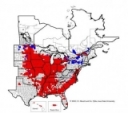
-Information provided my Julianne Johnston, The SCN Coalition-
"In just the past three years, soybean cyst nematode (SCN) has spread to 55 new U.S. counties in 11 states," says Dr. Greg Tylka, Iowa State University (ISU) nematologist and co-leader of The SCN Coalition. "SCN is now widespread in New York," says Dr. Gary Bergstrom. "Soybean growers are fortunate that in most fields where SCN has been detected, population densities are low, although it's concerning that a few counties had higher numbers." Growers are asking questions about SCN-resistant varieties, nematicide seed treatments, and soil testing for SCN. In 2020, researchers concluded that from 1996 to 2016, SCN caused yield losses of $32 billion dollars; averaging $1.5 billion annually. Research and sampling will be continued into the 2021 growing season in SWNY and throughout the state.
Meet our New Faculty Member: Dr. Louis Longchamps
Joshua Putman, Field Crops and Forage Specialist
Southwest New York Dairy, Livestock and Field Crops Program

Dr. Longchamps is an assistant professor in the Soil and Crop Science section of the School of Integrative Plant Science. His academic focus is on precision agriculture, digital agronomy, on-farm experimentation, and soil and crop improvement. He has a Ph.D. in weed science where he focused on weed distribution in corn fields in order to assess the best approach for weed spot spraying technologies. His postdoctoral studies worked to improve nutrient, water, and seed use efficiency by soil mapping and remote sensing. Dr. Longchamps experience will pair nicely with current and new faculty at Cornell University.
Herbicide Resistance Update on Marestail
Joshua Putman, Field Crops and Forage Specialist
Southwest New York Dairy, Livestock and Field Crops Program

Horticulture Weed Scientist, Dr. Lynn Sosnoskie, has been conducting some interesting research over the past few months. Extension specialists from all around the state collected and submitted weed specimens last fall for herbicide-resistance testing to better understand the best management practices for these weeds in field crops. We now have preliminary results from the first screening on horseweed aka marestail. Thirty populations have been tested so far and, it appears, that 27 out of 30 have resistance to the field-use rate of glyphosate (Roundup). Testing will continue with different chemistries so that we can provide growers with proper control measures. Join us next week for the Field Crop Series where we will cover topics on weeds, diseases, and insects in further detail.
Results from post-emergence corn herbicide study on waterhemp
Joshua Putman, Field Crops and Forage Specialist
Southwest New York Dairy, Livestock and Field Crops Program

A summary of 6 years of field research completed in southwestern Ontario Canada found that Callisto + Atrazine, Coverage + Atrazine, Shieldex + Atrazine and Acuron Flexi, applied postemergence in corn, controlled multiple-herbicide-resistant waterhemp 91-92%; Acuron provided the best control with 96%. *Provided by Dr. Peter Sikkema*
Register for the Virtual CORE Pesticide Training in January
Joshua Putman, Field Crops and Forage Specialist
Southwest New York Dairy, Livestock and Field Crops Program

Join us for another round of CORE training to obtain your pesticide license or receive 1.75 DEC recertification credits in the CORE category. Register online for January 12th from 9am - 10:50am or January 14th from 11am - 12:50pm for only $20. We will provide an overview of the basic information involved in the pesticide application certification process and will present the basics of Integrated Pest Management (IPM) as well as general pesticide safety, regulations and pesticide resistance. *IMPORTANT NOTE* Because of COVID-19, the DEC did not require growers whose licenses expired in November of 2019 or later to renew their applicator's license in order to buy & spray restricted use materials during the 2020 growing season. That discretionary policy is no longer in effect. If your license expired between November 2019 and November 23, 2020, you must obtain the full number of recertification credits and renew your license by February 23, 2021. If your license expires after November 23, 2020, you will follow the typical DEC guidelines. Feel free to contact Josh Putman with any questions. We hope to see you there!
What's new from CALS at Cornell University?
Joshua Putman, Field Crops and Forage Specialist
Southwest New York Dairy, Livestock and Field Crops Program
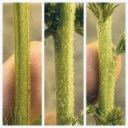
Horticulture Weed Scientist, Dr. Lynn Sosnoskie, has been conducting some interesting research over the past few months. Extension specialists from all around the state collected and submitted weed specimens for herbicide-resistance testing to better understand the best management practices for these weeds in field crops. Such species included marestail, Powell amaranth, waterhemp, and Palmer amaranth. In addition, Dr. Sosnoskie is working closely with Dr. Yu Jiang to develop a pocket Pigweed ID guide for growers. They are taking 3D images of the weeds at seedling stage all the way to flowering. This information and these tools will help growers maintain crop yields and apply the right herbicide chemistries to their fields.
Virtual CORE Pesticide Training and DEC Recertification
Joshua Putman, Field Crops and Forage Specialist
Southwest New York Dairy, Livestock and Field Crops Program

*IMPORTANT NOTE* Because of COVID-19, the DEC did not require growers whose licenses expired in November of 2019 or later to renew their applicator's license in order to buy & spray restricted use materials during the 2020 growing season. That discretionary policy is no longer in effect. If your license expired between November 2019 and November 23, 2020, you must obtain the full number of recertification credits and renew your license by February 23, 2021. If your license expires after November 23, 2020, you will follow the typical DEC guidelines.
The Results are in for SWNY! Soybean Cyst Nematode Distribution in the State
Joshua Putman, Field Crops and Forage Specialist
Southwest New York Dairy, Livestock and Field Crops Program
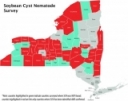
-Information prepared by Jaime Cummings, NYS Integrated Pest Management Program-
The 2020 statewide SCN survey revealed 23 NEW counties confirmed with at least one field positive for SCN. In SWNY, 3 out of 5 counties tested positive for SCN (Steuben, Allegany, and Chautauqua). This brings us to a total of 30 counties with SCN confirmations since 2016. The maps below illustrate the progress and results of our SCN testing over the past few years. Additional resources about SCN can be accessed at: https://www.thescncoalition.com/resources/tools-to-download. Also, check out these short videos titled "Let's Talk Todes" to learn more about managing soybean cyst nematode.
Farmland: To Purchase or to Lease?
Amy Barkley, Team Leader & Livestock Specialist
Southwest New York Dairy, Livestock and Field Crops Program

This year's growing season is coming to a rapid close. In thinking to the year ahead, how, where, and at what scale we want to farm may come back under the lens of consideration. Perhaps there is an opportunity to increase forage and crop production by expanding into more acreage. Maybe a chance to get into farming has presented itself. Whether you are looking to start a farm or are a seasoned farmer looking to expand the acreage of your enterprise, you can choose to either lease or purchase land.
End-of-Season Combine Clean-out Recommendations
Joshua Putman, Field Crops and Forage Specialist
Southwest New York Dairy, Livestock and Field Crops Program

For many growers in Southwest New York, fall harvest is coming to an end. Now is the time to prepare harvest equipment for winter storage. Proper preparation reduces the likelihood of animals nesting in the equipment which can lead to electrical damage resulting in fire, improves the function and longevity of parts, and puts a closure to the 2020 growing season.
Managing Corn Rootworm and a New Control Option for New York Farmers
Joshua Putman, Field Crops and Forage Specialist
Southwest New York Dairy, Livestock and Field Crops Program
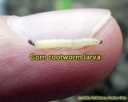
Biological Control of Corn Rootworm with Persistent Entomopathogenic Nematodes: An opportunity to try them on your farm
*Elson Shields, Entomology, Cornell University, Ithaca, NY
Corn rootworm (CRW) is the number one pest of corn in both NY and the U.S. Recent NY field data are showing that the biocontrol nematodes being released against alfalfa snout beetle are also having an impact on CRW after the field is rotated from alfalfa into corn. Research in NNY for the past 18 years has shown that a single field application of persistent biocontrol nematodes inoculates the field for multiple years and across rotations. In 75 fields following a typical alfalfa-corn rotation, not only did the biocontrol nematodes persist for multiple years at sufficient populations to suppress soil insects, but biocontrol nematode populations were higher after 4-years of corn than in the alfalfa before being rotated to corn. These results suggested the biocontrol nematodes were attacking CRW during the corn years of the rotation.
NY Farm Service Agency to Host Meetings on Coronavirus Food Assistance Program 2
Amy Barkley, Team Leader & Livestock Specialist
Southwest New York Dairy, Livestock and Field Crops Program

The U.S. Department of Agriculture's (USDA) Farm Service Agency (FSA) in New York is hosting two meetings about the Coronavirus Food Assistance Program 2 (CFAP 2). The first meeting will be Tuesday, November 17th at noon, and the second, which will focus on the specialty crops portion of CFAP 2, will be Wednesday, November 18th at noon. FSA is accepting applications for CFAP 2 through December 11, 2020. To find the latest information on CFAP 2, eligible crops, payment rates, and the application and payment calculator, visit farmers.gov/cfap.
2020 Corn Silage Overview Available
Joshua Putman, Field Crops and Forage Specialist
Southwest New York Dairy, Livestock and Field Crops Program

2020 Corn Silage Overview Available
-Provided by Joe Lawrence and Allison Kerwin - PRO-DAIRY at Cornell and Department of Animal Science-
The 2020 NY & VT Corn Silage Hybrid Evaluation Program Report is now available. The growing season across much of the Northeast started out with below average temperatures, but despite the cool start, good growing conditions allowed for a timely fall harvest. Each year brings its own challenges and opportunities. It is important to evaluate the data in the context of your own farm when selecting corn hybrids. The top performing hybrid at any location may not be a good fit for another location or soil type. The PDF version can be accessed here or for additional information about hybrid performance and placement, contact Josh Putman at jap473@cornell.edu or 716-490-5572.
Important Notice for Licensed Pesticide Applicators!
Joshua Putman, Field Crops and Forage Specialist
Southwest New York Dairy, Livestock and Field Crops Program

Important Notice for Licensed Pesticide Applicators!
Because of COVID-19, the NYS DEC did not require growers whose licenses expired in November of 2019 or later to renew their applicator's license in order to buy & spray restricted use materials during the 2020 growing season. That discretionary policy is no longer in effect. If your license expired between November 2019 and Nov. 23, 2020, you must obtain the full number of recertification credits and renew your license. Starting Nov. 24, 2020, you cannot to buy or apply pesticides until your license has been renewed. The DEC is giving growers a 90-day grace period before adding penalty credits to overdue renewal applications. Growers should complete COVID-delayed license renewals by February 23, 2021. If your license expires after Nov. 23, 2020, you will follow the typical DEC renewal process.
EPA Announces 2020 Dicamba Registration Decision
Joshua Putman, Field Crops and Forage Specialist
Southwest New York Dairy, Livestock and Field Crops Program

EPA Announces 2020 Dicamba Registration Decision
October 27, 2020 — On Tuesday, U.S. Environmental Protection Agency (EPA) Administrator Andrew Wheeler announced that EPA is approving new five-year registrations for two dicamba products and extending the registration of an additional dicamba product. All three registrations include new control measures to ensure these products can be used effectively while protecting the environment, including non-target plants, animals, and other crops not tolerant to dicamba. "With today's decision, farmers now have the certainty they need to make plans for their 2021 growing season," said EPA Administrator Andrew Wheeler. "After reviewing substantial amounts of new information, conducting scientific assessments based on the best available science, and carefully considering input from stakeholders we have reached a resolution that is good for our farmers and our environment."
Corn Diseases and Mycotoxin Contamination of Corn Grain in Southwest New York
Joshua Putman, Field Crops and Forage Specialist
Southwest New York Dairy, Livestock and Field Crops Program

Mycotoxin is a general term for a poison produced by a fungus and can be toxic when inhaled, absorbed through the skin, or consumed at very low concentration levels. Corn and small grain cereals are especially prone to mycotoxin accumulation in their seed tissue. In the past, it was believed that the fungus affected grain only during the postharvest stage, particularly when grain was stored under suboptimal conditions (hot and humid/moist). Although these factors can promote fungal growth in storage, this occurs during the growing season as well.
Ten Things You Should Know Before Leasing Land for Solar Development
Amy Barkley, Team Leader & Livestock Specialist
Southwest New York Dairy, Livestock and Field Crops Program

Development of land for solar energy projects is becoming common across the state of New York. These large projects require land leases from landowners, which can extend 40-50 years. While leasing land for solar development can provide supplemental income to a landowner, there are some things to keep in mind before signing your name on the dotted line. Daniel Brockett of Penn State Extension and George Thompson of Wilson, Thompson, and Cisek, LLC, help bring some of these important considerations to light.
Taking, Preparing, and Submitting a Soil Sample for Testing
Amy Barkley, Team Leader & Livestock Specialist
Southwest New York Dairy, Livestock and Field Crops Program

Soil testing is the easiest way to identify and quantify nutrient imbalances in our agricultural soils. It will identify major nutrients such as nitrogen, phosphorous, and potassium as well as pH, organic matter, and some micronutrients. Following a proper sampling technique is essential to achieving a representative sample, and preparing both the sample and submission form appropriately will allow for complete test results in addition to precise nutrient and liming recommendations. For more information about soil testing or report interpretation, please reach out to Amy Barkley, Livestock and Beginning Farm Specialist at amb544@cornell.edu or (716) 640 - 0844 or Josh Putman, Forage and Field Crop Specialist at jap473@cornell.edu or (716) 490-5572.
Preventing the Spread of Troublesome Weeds at Harvest in Southwest New York
Joshua Putman, Field Crops and Forage Specialist
Southwest New York Dairy, Livestock and Field Crops Program

-Article information adapted from PennState Extension written by Dr. John Wallace and Heidi Reed-
Resistant weeds cause significant yield loss, increased production costs, and are becoming a bigger problem every year in New York. Farmers rarely proactively manage weeds to prevent or delay selection for herbicide resistance. They usually increase the adoption of integrated weed management practices only after herbicide resistance has occurred. Our most problematic herbicide-resistant weeds, like horseweed (marestail), waterhemp, and Palmer amaranth, can easily spread from one field, or one farm, to the next, as seeds get trapped in/on tillage, planting, and harvest equipment and ride field-to-field this time of year.
NESARE Invites Applicants for their 2021 Farmer Grant Program
Amy Barkley, Team Leader & Livestock Specialist
Southwest New York Dairy, Livestock and Field Crops Program
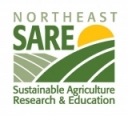
Northeast SARE is now accepting applications for its Farmer Grant Program. Up to $15,000 is available per project. The online system opens on Oct. 1 and applications are due by 5 p.m. on Nov. 17, 2020. The Farmer Grant Program funds farmers to explore new concepts in sustainable agriculture on production, marketing, labor, farm succession, social capital and other areas through experiments, surveys, prototypes, on-farm demonstrations or other research and education techniques. Grants may not be used to help start or expand farm businesses. Application materials, including detailed instructions and supporting documents, are posted at www.northeastsare.org/FarmerGrant. A webinar on how to apply is scheduled for Tuesday, October 6 from 12pm - 1pm. Please contact Amy Barkley, Livestock and Beginning Farm Specialist, at 716-640-0844 or amb544@cornell.edu if you are interested in applying for a SARE Farmer Grant.
Local Frost Advisories - What it Could Mean for Corn Producers in Southwest New
Joshua Putman, Field Crops and Forage Specialist
Southwest New York Dairy, Livestock and Field Crops Program

Frost can mean yield loss for crop producers, although the severity of damage varies based on crop maturity, topographical features and local climate conditions. A corn-killing freeze occurs when temperatures fall to 32 F for several hours or 28 F for a few minutes.
Second Round of Coronavirus Food Assistance Program for Farms Now Available
Alycia Drwencke, Dairy Management Specialist
Southwest New York Dairy, Livestock and Field Crops Program

The USDA's Farm Service Agency's (FSA) recently opened the second round of Coronavirus Food Assistance Program (CFAP) for agricultural businesses. If you are an agricultural producer whose operation has been affected by COVID-19, you are likely eligible for this second round of support. FSA will accept applications from September 21 - December 11, 2020 from agricultural businesses for this support. A full list of eligible commodities can be found here. For more information, or to apply, visit www.farmers.gov/cfap or contact your local FSA office. In the Southwest NY region, the county offices can be reached at: Allegany (585) 268-5133; Cattaraugus (716) 699-2375; Chautauqua (716) 664-2351; Erie (716) 652-1400; Steuben (607) 776-7398.
Lime Guidelines for Field Crops in New York
Amy Barkley, Team Leader & Livestock Specialist
Southwest New York Dairy, Livestock and Field Crops Program

Lime Guidelines for Field Crops in New York, written by Quirine M. Ketterings, W. Shaw Reid, and Karl Czymmek
Liming is an essential component of successful pasture and field crop management in the SWNY region. With most of our soils being heavy and acidic, plant growth can suffer. Yields may only weigh in at a fraction of their potential, and stand persistence, in the case of pastures and hay fields, can suffer. Fall is an excellent time of year to apply lime because it allows the material to begin to neutralize pH before the next season. Once soil testing has been completed and a liming recommendation is in hand, it is time to make decisions on the type of lime to use, time of year to apply it, and how it should be applied. This guideline from Cornell's Department of Crop and Soil Sciences explores these questions at length to help with the decision-making process. If you have questions about liming your pastures, reach out to Amy Barkley, Livestock and Beginning Farm Specialist at amb544@cornell.edu or (716) 640 - 0844. Questions on liming field crops can be directed to Josh Putman, Forage and Field Crop Specialist at jap473@cornell.edu or (716) 490-5572.
Monitoring Fields for Soybean Cyst Nematode in Southwest NY
Joshua Putman, Field Crops and Forage Specialist
Southwest New York Dairy, Livestock and Field Crops Program

We need your help! Take the test. Beat the pest.
Soybean Cyst Nematode (SCN) is the most destructive pest of soybean in the United States. Yield losses in soybean due to SCN have been estimated at more than $1 billion annually in the U.S. Because the nematode can be present in fields without causing obvious aboveground symptoms, yield losses caused by SCN are often underestimated.
Consider Planting Winter Wheat After the Hessian Fly-Free Date
Joshua Putman, Field Crops and Forage Specialist
Southwest New York Dairy, Livestock and Field Crops Program

As fall approaches, growers should consider the recommended timing for planting winter wheat. For years, the standard recommendation for profitable wheat production in New York has been to plant wheat after the Hessian fly-free date. This recommendation is based on the fact that Hessian fly adults would no longer be alive as there are no remedial measures available to save an infested crop. An article prepared by Ken Wise, with the New York State Integrated Pest Management Program, discusses the recommend timing to plant wheat to avoid injury from the Hessian fly as well as a detailed description about this pest. For more information about winter cereal production, contact Josh Putman at 716-490-5572 or jap473@cornell.edu.
Don't Forget to Complete the 2020 Census!
Alycia Drwencke, Dairy Management Specialist
Southwest New York Dairy, Livestock and Field Crops Program

Have you completed the 2020 Census? Completing the 2020 Census will determine where over $675 billion in federal funding is spent in states and communities for the next ten years. When filling out the Census, your personal information is kept confidential by law. Whether it's funding in communities across your state or helping determine the number of seats your state will have in the U.S. House of Representatives—every count makes an equal impact. Be sure you are counted and visit 2020Census.Gov for more information.
Corn Silage Harvest
Joshua Putman, Field Crops and Forage Specialist
Southwest New York Dairy, Livestock and Field Crops Program

Corn silage harvest is under way in New York. An article recently published by Cornell CALS PRO-DAIRY, describes the Corn Silage Processing Score (CSPS), implementation of kernel processing, and how to monitor processor performance. In a second article, they explain the effect of corn plant characteristics on corn silage processing scores. Listen to the newly published PODCAST series titled "Corn Silage Harvest Considerations." For more information, contact Field Crops Specialist Josh Putman.
2020 Changes to New York Farm Labor Laws: Recording & Presentation
New York's farm labor laws changed greatly with the 2019 Farm Laborer Fair Labor Practices Act (FLFLPA), the laws changed again this year when several amendments were included in the Budget Act in 2020. On August 17, 2020, Cornell Ag Workforce Development and Northeast Dairy Producers Association (NEDPA) recorded a webinar to help all farmers understand the changes. Find below links to a PDF of the presentation with active links and a recording of "2020 Updates to New York Farm Labor Laws."
- Link to a PDF of the meeting presentation, including links to additional information
- Link to a recording of the webinar
NYS Forage Exchange Website Announced
Joshua Putman, Field Crops and Forage Specialist
Southwest New York Dairy, Livestock and Field Crops Program

The NYS Forage Exchange provides a free system to match potential sellers and buyers of forage within New York State. Sellers can easily register within the system and then post the forage they have available to sell. Potential purchasers can browse the advertisements, and then contact the seller through email for additional information or to complete purchase arrangements.
USDA Announces Organic Certification Cost Share Program
Amy Barkley, Team Leader & Livestock Specialist
Southwest New York Dairy, Livestock and Field Crops Program

The United States Department of Agriculture (USDA) is administering a cost-share program for current organic producers to renew their certifications. Up to 50% of eligible certification costs have the potential to be reimbursed through the program, with a maximum of $500 per certification. More information can be found here: https://www.fsa.usda.gov/Assets/USDA-FSA-Public/usdafiles/FactSheets/organic_certification_cost_share_program-fact_sheet.pdf
Register for the Virtual Cornell Hemp Field Day
Joshua Putman, Field Crops and Forage Specialist
Southwest New York Dairy, Livestock and Field Crops Program

Due to COVID-19 safety restrictions, this year's Hemp Field Day is being presented virtually. Pre-Register now to attend this event!
SWNY Field Crop Chronicle - 8/5/2020
Joshua Putman, Field Crops and Forage Specialist
Southwest New York Dairy, Livestock and Field Crops Program

The Southwest NY Diary, Livestock, Field Crops Program is excited to announce a new method of delivering field crop topics and information!
Early-Season Corn Disease: Northern Corn Leaf Blight
Joshua Putman, Field Crops and Forage Specialist
Southwest New York Dairy, Livestock and Field Crops Program

In 2019, northern corn leaf blight (NCLB) appeared throughout the Southwest New York region. Weather conditions in 2020 are favorable and might lead to disease infestations in SWNY.
Don't Miss Out On The Next CORE Pesticide Training July 21st, 6PM-7:50PM!
Joshua Putman, Field Crops and Forage Specialist
Southwest New York Dairy, Livestock and Field Crops Program

Our first online CORE pesticide training was a huge success with great participation from the group. The SWNY Dairy, Livestock, and Field Crops team is hosting a second training this coming Tuesday, July 21, from 6-7:50PM.
Heat-Stress and Lack of Moisture on Corn and Soybeans in SWNY
Joshua Putman, Field Crops and Forage Specialist
Southwest New York Dairy, Livestock and Field Crops Program

Last week, SWNY was experiencing severe heat as well as symptoms of drought stress and seen in many crops. Corn leaves were rolling, soybean leaves were flipped, leaf tissue was turning grey, and there was no sight of rain.
Silage Safety Resources
Alycia Drwencke, Dairy Management Specialist
Southwest New York Dairy, Livestock and Field Crops Program

With 2nd cutting of hay well under way or finished and corn silage harvest quickly approaching, it is important to revisit silage safety. Lallemand Animal Nutrition has released a few safety resources for farm this harvest season. They are also willing to perform individualized training on farm. For additional questions on silage safety, reach out to Dairy Management Specialist, Alycia Drwencke or Field Crops Specialist, Josh Putman.
Spreading Dogbane - A problematic weed in SWNY
Joshua Putman, Field Crops and Forage Specialist
Southwest New York Dairy, Livestock and Field Crops Program

Josh Putman, Field Crops Specialist with the SWNY Dairy, Livestock & Field Crops program recently ran across a plant in a hay field that had not been worked for a few years and was very difficult to identify. Pictures of the weed were sent to Cornell's Weed Ecology and Management Laboratory and correctly identified. Spreading dogbane, Apocynum androsaemifolium, is in the same family as milkweeds and swallowworts, and the same genus as hemp dogbane. This perennial plant is found in open, dry areas and in disturbed habitats throughout New York and most of the US and Canada.
Dicamba Notice to Users, Distributors and Sellers - June 29, 2020
Joshua Putman, Field Crops and Forage Specialist
Southwest New York Dairy, Livestock and Field Crops Program

On June 3, 2020, the United States Court of Appeals for the Ninth Circuit vacated EPA's registration of three products containing the active ingredient dicamba, which effectively cancelled their federal registrations. The three products are: Xtendimax with Vaporgrip Technology, Engenia, and FeXapan.
On June 8, 2020, in response to the Court's decision, EPA issued a Cancellation Order for these three products. In light of the Court's decision associated with these registrations and the provisions of EPA's Cancellation Order to implement that decision, DEC is taking these actions:
1) Registrations - The registrations of the three products will be cancelled as of July 31, 2020 in accordance with the provisions of ECL Section 33-0713. Thirty days' notice will be provided to the registrants of these products.
2) Distribution or Sale - Distribution or sale of existing stocks of the three products shall be limited as follows:
- Distribution or sale by registrants is prohibited immediately, except for distribution for the purposes of proper disposal.
- Distribution or sale of products that are already in the possession of someone other than the registrant is permitted only for disposal or to facilitate return to the registrant or a registered establishment.
- Distribution or sale by commercial applicators is permitted to facilitate use no later than July 31, 2020.
3) Use - All use, including storage of open containers, is prohibited after July 31, 2020.
Questions about dicamba may be directed to pesticidecompliance@dec.ny.gov or ppr@dec.ny.gov or by calling 518-402-8727.
Side Dressing Fertilizer in Corn by Janice Degni

Janice Degni with the South Central NY Dairy and Field Crops Team recently shared considerations for Side-Dressing Fertilizer in Corn. Be sure check out these key points as the time to side-dress is quickly approaching. For additional information on this topic, reach out to Josh Putman.
Black Cutworm and True Armyworm Moth Captures and Weed Pressure in SWNY
Joshua Putman, Field Crops and Forage Specialist
Southwest New York Dairy, Livestock and Field Crops Program

This week, Field Crops Specialist, Josh Putman, with the Southwest NY Dairy, Livestock, and Field Crops program scouted traps and fields throughout the region. In Avoca, NY, both moth species were present having 7 cutworm and 10 armyworm; not much larvae feeding was found. In Springville, NY 3 black cutworm and 3 armyworm were collected; we now have evidence of cutworm feeding on corn plants. According to Dr. Mike Stanyard of the NWNY Dairy, Livestock, and Field Crops team, it is important to be out scouting your fields now for pest damage and economic threshold that may require management. In addition, with the warm temperatures and increased day length, we are seeing an increase of weed pressure in our field crop production systems. Summer annual weeds compete for sunlight, nutrients and water. Don't let these pests rob your crop yields!
Cutworm and Armyworm Moth Captures Increase Significantly in Southwest NY
Joshua Putman, Field Crops and Forage Specialist
Southwest New York Dairy, Livestock and Field Crops Program

Field Crops Specialist, Josh Putman, with the Southwest NY Dairy, Livestock, and Field Crops program scouted traps and fields throughout the region. This week, moth captures increased significantly at both locations in the region. In Avoca, NY, both moth species were present having 13 cutworm and 11 armyworm. Higher numbers were captured in Springville, NY with 21 black cutworm and 13 armyworm collected; no evident feeding from larvae was present in corn fields that were emerged. Field Crops Specialists from the Northwest NY Program are finding much higher numbers of both pests in their traps this week. Correct identification of the larvae and larvae feeding can be difficult; contact your local extension specialist for proper identification and management.
Monitoring Your Alfalfa Fields for Weevil
Joshua Putman, Field Crops and Forage Specialist
Southwest New York Dairy, Livestock and Field Crops Program
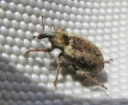
Despite this cold, wet spring, which has delayed planting and other farming efforts across NY, our pests and diseases continue to rear their ugly heads. This serves as a reminder that we need to continue to be vigilant with our scouting efforts for early detection of pests to make sound management decisions.
Soil Temperatures and Insect Captures Remain Low in Southwest New York
Joshua Putman, Field Crops and Forage Specialist
Southwest New York Dairy, Livestock and Field Crops Program

As daytime temperatures struggle to get above 50 F and nighttime temperatures falling below freezing, soils in Southwest NY are warming at a slow pace. Average soil temperatures across the SWNY region ranged from 42-56 F. Black cutworm and true armyworm moth counts also remain low as Avoca, NY had 0 black cutworm and 2 armyworm. Springville, NY location had 2 black cutworm and 3 armyworm moths in the traps. Weekly monitoring of these pests will continue and as temperatures continue to rise, we need to be scouting our fields for potential larvae. Contact Field Crop Specialist, Josh Putman, with the SWNY Dairy, Livestock, and Field Crops team for correct pest identification. For additional information, see the Crop Alert provided by the NWNY Diary, Livestock and Field Crops team.
Caught! Black Cutworm and True Armyworm Moths Making Their Way into Southwest Ne
Joshua Putman, Field Crops and Forage Specialist
Southwest New York Dairy, Livestock and Field Crops Program

Black cutworm and True armyworm are problematic insects that can significantly cause damage here in New York. We are working to monitor these moths as they enter the region.
Cornell Pesticide Management Education Program
Joshua Putman, Field Crops and Forage Specialist
Southwest New York Dairy, Livestock and Field Crops Program
Along with the increased use of disinfectants and sanitizers during the COVID-19 pandemic,
there has been an increase in adverse health effects from the misuse of these
products. There have also been several fraudulent products produced during this
time that potential applicators should be made aware of.
Traps being set in Southwest New York
Joshua Putman, Field Crops and Forage Specialist
Southwest New York Dairy, Livestock and Field Crops Program

Black cutworm and True armyworm traps are being set throughout Southwest NY to monitor moth flights from the south as well as the west. These can be very problematic to field crop and hay producers and it is important to monitor your fields before they cause economic damage. Recently, other Extension Specialists have caught True armyworm moths and we will continue to monitor the traps that are being placed in SWNY.
USCIS Gives H-2A Workers Temporary Flexibility to Stay and Work Longer
Alycia Drwencke, Dairy Management Specialist
Southwest New York Dairy, Livestock and Field Crops Program

Cornell Agricultural Workforce Development has shared some of the key excerpts on H-2A updates. Notice was published in the Federal register on Monday that gives H-2A workers temporary flexibility to stay and work longer in the United States.
Face Covering Required for Essential Workers With Direct Public Contact
Katelyn Walley, Business Management Specialist and Team Leader
Southwest New York Dairy, Livestock and Field Crops Program

"For all essential businesses or entities, any employees who are present in the workplace shall be provided and shall wear face coverings when in direct contact with customers or members of the public. Businesses must provide, at their expense, such face coverings for their employees. This provision may be enforced by local governments or local law enforcement as if it were an order pursuant to section 12 or 12-b of the Public Health Law. This requirement shall be effective Wednesday, April 15 at 8 p.m."
Attention Crop Farmers: Fertilizer Value of Milk
Katelyn Walley, Business Management Specialist and Team Leader
Southwest New York Dairy, Livestock and Field Crops Program
Significant quantities of surplus milk from NY's dairy industry may have to be land applied in the coming weeks due to unprecedented market disruptions created by the COVID-19 emergency. Karl Czymmek of Cornell PRO-DAIRY shares helpful information for crop farmers.
How warm are your soils? Things to consider prior to planting
Joshua Putman, Field Crops and Forage Specialist
Southwest New York Dairy, Livestock and Field Crops Program
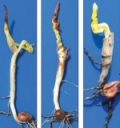
Selection of optimal planting date is one of the most critical factors in the decision making process for producers. When making this decision, producers should consider soil temperatures rather than just calendar dates. How warm are your soils?
NYS DEC delays enforcement of the pesticide certification period
Joshua Putman, Field Crops and Forage Specialist
Southwest New York Dairy, Livestock and Field Crops Program

Pesticide Certification and Business Registration during Pause-NY: DEC is taking the following actions to temporarily allow regulatory flexibility and continued pesticide application and business operations during Pause-NY due to the unique conditions facing New York and the entire nation.
Reliable Resources for Spanish- & English-Speaking Farmworkers about COVID-19

Libby Eiholzer, CCE Northwest NY Dairy, Livestock & Field Crops Team, and Richard Stup, Cornell Agricultural Workforce Development have compiled reliable resources for farm workers on COVID-19 in both English and Spanish.
Scout your hay fields to assess winter annual weed pressure
Joshua Putman, Field Crops and Forage Specialist
Southwest New York Dairy, Livestock and Field Crops Program

Alfalfa and grass hay stands are greening up across Southwest NY and all across Western NY over the last 10 days. Recently, Field Crops Specialist Josh Putman with the SWNY Dairy, Livestock, and Field Crops Team, has been out monitoring fields for potentially damaging pests in hay production fields. Winter annual weeds are being seen in high numbers and even more so in older hay stands.
Traps being set for black cutworm and armyworm - Watch your fields!
Joshua Putman, Field Crops and Forage Specialist
Southwest New York Dairy, Livestock and Field Crops Program
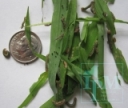
True armyworm (aka Common armyworm) is a problem in agronomic and turf production systems here in New York. They do not overwinter in New York, but fly north from states to our south in the spring. Armyworm moth migrations are somewhat sporadic, cyclic from year to year, and difficult to predict. We are gearing up to set traps throughout the region to help growers predict the potential risk of armyworm infestation in wheat and corn this spring.
Statewide herbicide resistance screening to start in 2020: Help us help you!
Joshua Putman, Field Crops and Forage Specialist
Southwest New York Dairy, Livestock and Field Crops Program

Herbicide-resistant weeds are an increasing issue in the United States. Here in NY, we are finding some very problematic species that can cause issues with your farming operation. This is one way Weed Scientists here in the state are looking to monitor these pests.
Still looking for DEC recertification credits? Here is an opportunity for you!
Joshua Putman, Field Crops and Forage Specialist
Southwest New York Dairy, Livestock and Field Crops Program

Are you interested in obtaining recertification credits for your applicator license? Here's how to obtain points!
NY FarmNet Continues to Offer Free Services - Call 1-800-547-3276
Katelyn Walley, Business Management Specialist and Team Leader
Southwest New York Dairy, Livestock and Field Crops Program
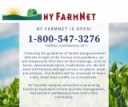
NY FarmNet is continuing to support our agricultural producers through free and confidential consultations.
Corn Diseases in Southwest NY
Joshua Putman, Field Crops and Forage Specialist
Southwest New York Dairy, Livestock and Field Crops Program

2019 was a year for many diseases. Here are a few things to keep in mind going into the 2020 growing season!
CORE Pesticide Training & NYSDEC Exam 2020
Katelyn Walley, Business Management Specialist and Team Leader
Southwest New York Dairy, Livestock and Field Crops Program

3.0 pesticide recertification credits in the CORE category have been officially approved for this event. Attend a CORE Pesticide training and register to take your NYSDEC Exam. Participants looking to receive their applicators license must have experience working on their own farm, or through employment on another farm. March 26th - Jamestown. April 2nd - Bath
An Update from SWNYDLFC
Katelyn Walley, Business Management Specialist and Team Leader
Southwest New York Dairy, Livestock and Field Crops Program

Since July 1st, 2019, our new program has been busy with on-boarding, needs assessment, educational programming, and getting the chance to meet some of our region's amazing farmers. We've hired four specialists that are on-board and ready to hit the ground running in the specialty areas of Farm Business Management, Field Crops, Dairy Management, and Livestock. We're working with each of our five county associations' Executive Directors, Board of Directors, Program Committees, and Agriculture Program Staff to get to know the region and its programming needs while introducing this collaborative model of dairy, livestock, and field crops outreach.
Palmer Amaranth Confirmed in Southwest New York
Joshua Putman, Field Crops and Forage Specialist
Southwest New York Dairy, Livestock and Field Crops Program

Palmer amaranth is one of the most problematic weed species in the United States. Its biology and ability to become resistant to several classes of herbicides make it very difficult to control in production systems.
The Muddy Boot Weed Seed Dispersal Method
Joshua Putman, Field Crops and Forage Specialist
Southwest New York Dairy, Livestock and Field Crops Program

Tall waterhemp is one of the most problematic weed species throughout the Midwest and has now arrived and spread to eight counties in Upstate New York. Waterhemp can spread from field-to-field and farm-to-farm on equipment, clothing, application equipment, or via water from over flooded ditches and rivers. Following a recent field day event we wanted to demonstrate the amount of weed seed that could travel back with you.
Upcoming Events
Northeast Grazing and Livestock Conference
January 30 - January 31, 2026 : Northeast Grazing and Livestock Conference
Manchester, NH
Boots in the Barn: Cornell Dairy Research Updates
January 13, 2026
January 20, 2026
January 27, 2026
February 3, 2026
February 10, 2026
February 17, 2026
February 24, 2026
Winter Field Crops Meeting
February 3, 2026 : Winter Field Crops Meeting
North Collins, NY
Announcements
Cows, Crops & Critters Newsletter Sponsorship
TRYING TO REACH GROWERS AND AGRIBUSINESSES IN OUR SOUTHWEST REGION OF NEW YORK?Weekly Email Update: Shared with 625+ households who have signed up with our program.
Monthly Paper Mailer: To reach our stakeholders and farmers who lack internet access, we send out a monthly mailer where your company's logo and contact information would be featured with a mailing list of 330+ households.
If you sponsor our weekly and monthly publications you reach approximately 955 households.





